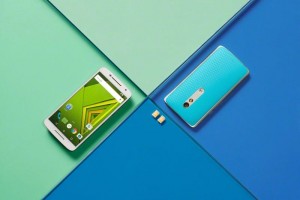 If you are the owner of a Motorola or Lenovo smartphone, you really ought to know about Motorola’s Software Fix app for Windows. This is a fantastic support app that will do its very best to get your phone up and running again without needing a trip to the local phone repair shop. No, it can’t fix a cracked screen but it can fix bootloader issues and OTA upgrade problems.
If you are the owner of a Motorola or Lenovo smartphone, you really ought to know about Motorola’s Software Fix app for Windows. This is a fantastic support app that will do its very best to get your phone up and running again without needing a trip to the local phone repair shop. No, it can’t fix a cracked screen but it can fix bootloader issues and OTA upgrade problems.
I’ve used it to repair a Moto G-something where the bootloader had become unlocked and every time the phone rebooted, there was an imperious warning in red lettering before the phone started booting. It wasn’t really a big deal but I wanted to sell the phone and make sure it was all in good working order for the buyer. Software Fix sorted it out, upgrading the phone to the latest Android version and relocking the bootloader.
 Previously known as RSA (Rescue and Support Assistant), it’s been rebranded as Software Fix and works with Motorola and Lenovo phones, tablets and headsets. On the whole, the software is straightforward but it can be a little intimidating as Windows and the phone can sometimes throw up warnings when installing software such as the ADB drivers. You need to power through.
Previously known as RSA (Rescue and Support Assistant), it’s been rebranded as Software Fix and works with Motorola and Lenovo phones, tablets and headsets. On the whole, the software is straightforward but it can be a little intimidating as Windows and the phone can sometimes throw up warnings when installing software such as the ADB drivers. You need to power through.
Overall, it’s a case of install the software, connect the phone via a cable and get busy. A connection through WiFi works for some of the tools, but I prefer the greater certainty of a USB cable. One of the early steps in the process is to enable Developer Mode by tapping on Build multiple times and Software Fix takes you though what needs to be done.
In addition to repairs, hardware tests can check the phone is operating normally.
One word of warning. If you do any low level work such as upgrading the OS, these actions are destructive as it’s effectively a factory reset (although it remains tied to the Google account). Make sure you have all the backups and uploads done before you start work.
Finally, if you do have a Motorola or Lenovo device, I’d recommend taking a look at this now even if you don’t yet have a problem. It’s worth figuring it all out before you have a problem, so that when you do, it’s an easy fix as you’ve got everything ready.




 The Motorola Modular Power System is a new line of battery products being introduced by
The Motorola Modular Power System is a new line of battery products being introduced by  Also on display at CES is the Schumacher Portable Power Generator (model SL1404), a backup power system that can supply household electricity as an excellent alternative to a generator. It’s quiet and has no fumes or fuel, making it safe for indoor use.
Also on display at CES is the Schumacher Portable Power Generator (model SL1404), a backup power system that can supply household electricity as an excellent alternative to a generator. It’s quiet and has no fumes or fuel, making it safe for indoor use. Since the mass adoption of the cell phone happened starting in the 1990’s, like everyone else I’ve gone through a long succession of cell phones. My very first cell phone was a Motorola bag phone. Remember those? Analog cell phones could sound surprisingly good. Of course, in fringe reception areas, the sound quality would often become quite crackly and was prone to dropped calls. Those bag phones could output up to three watts of power, so the reception could be decent depending on the area it was operating in.
Since the mass adoption of the cell phone happened starting in the 1990’s, like everyone else I’ve gone through a long succession of cell phones. My very first cell phone was a Motorola bag phone. Remember those? Analog cell phones could sound surprisingly good. Of course, in fringe reception areas, the sound quality would often become quite crackly and was prone to dropped calls. Those bag phones could output up to three watts of power, so the reception could be decent depending on the area it was operating in.
